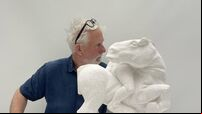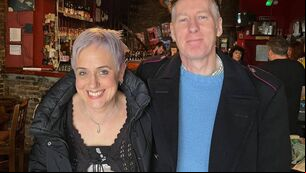Cork mum: I am kinder to myself since autism diagnosis

Sharon McCarthy, who has worked in the autism field for 20 years.
Sharon, who recently recorded a Tedx talk about being identified as autistic and having ADHD, used to have a very negative internal dialogue, constantly berating herself after a night out with friends for having said the ‘wrong thing’.







 App?
App?


